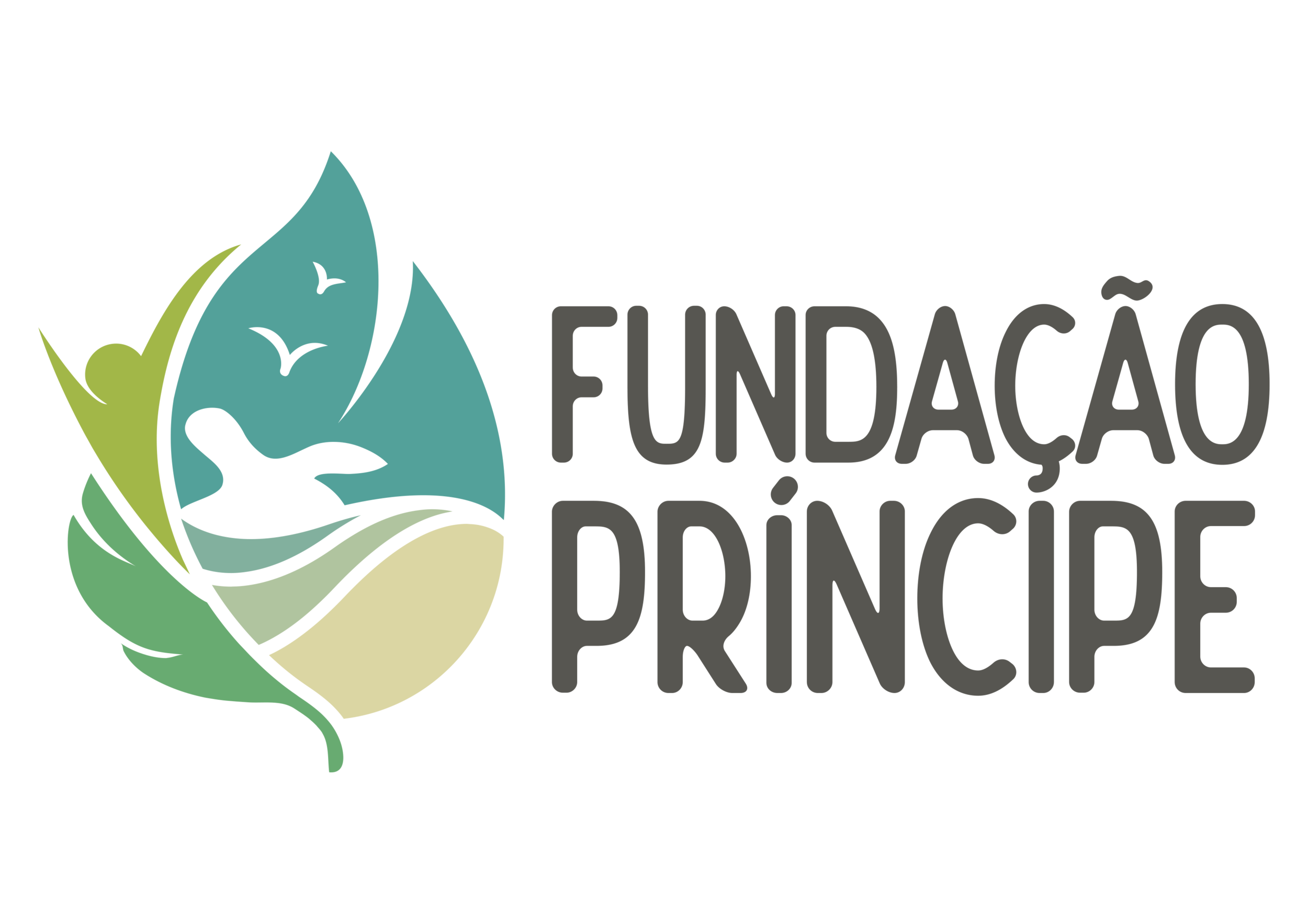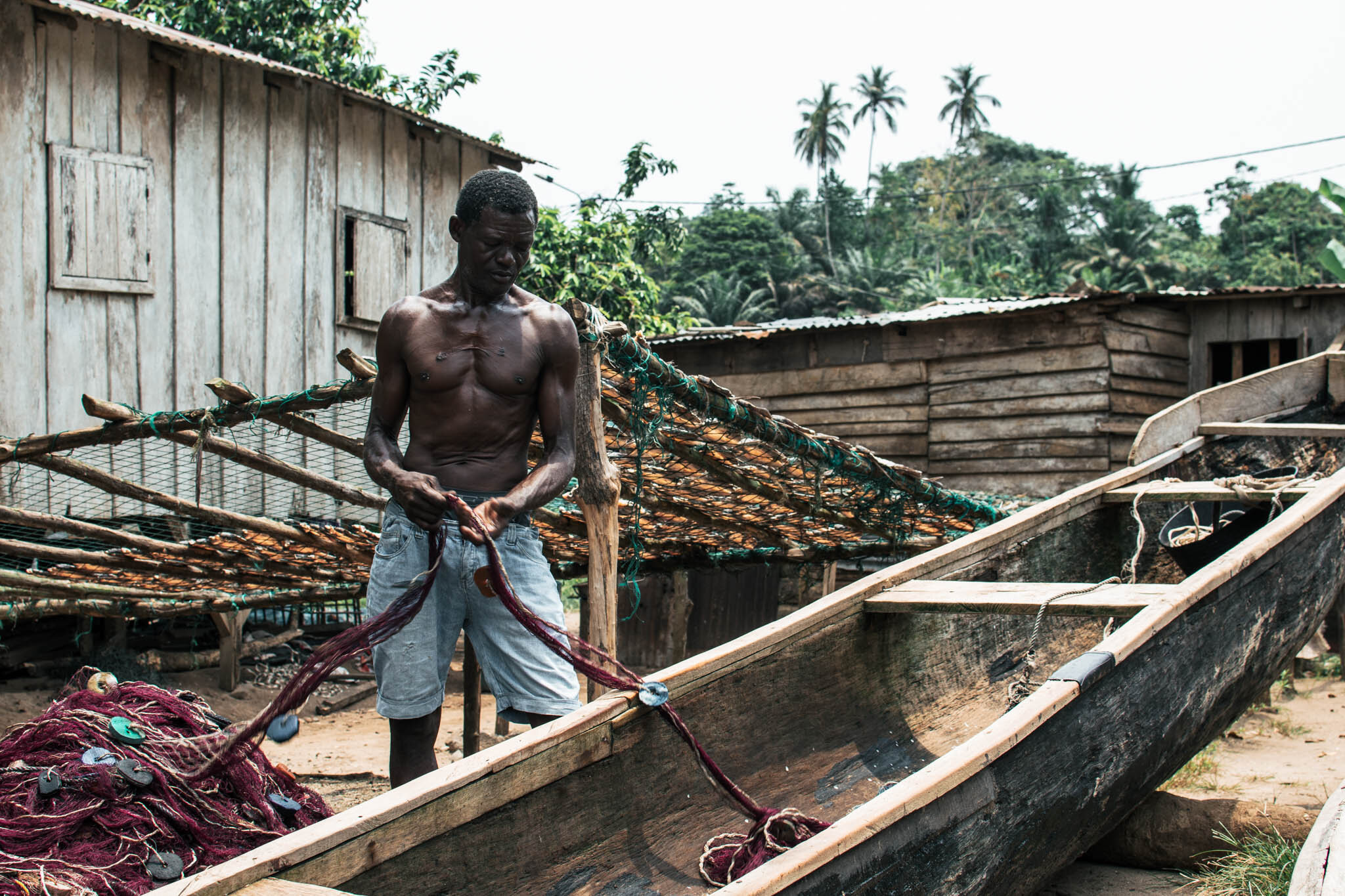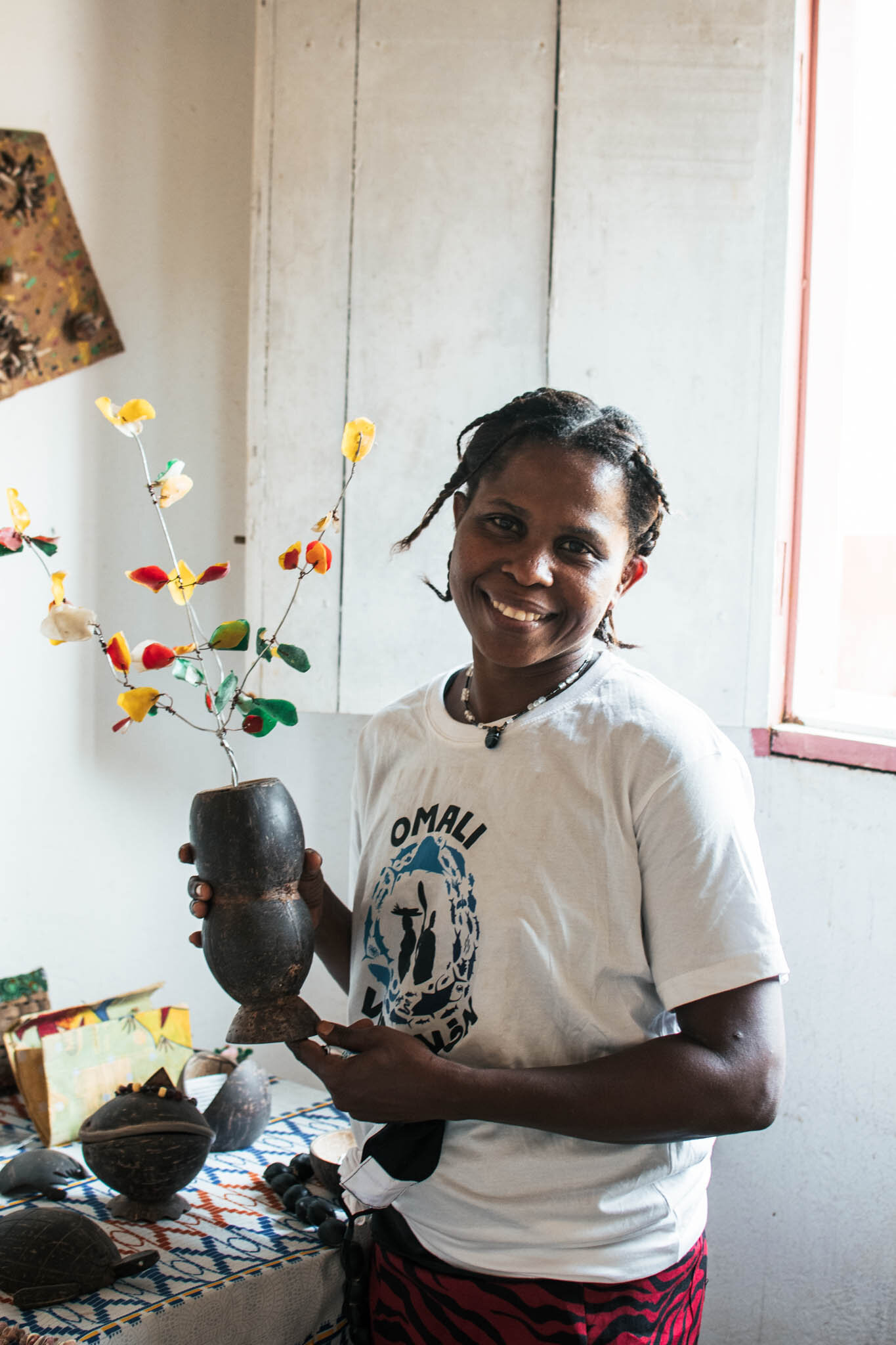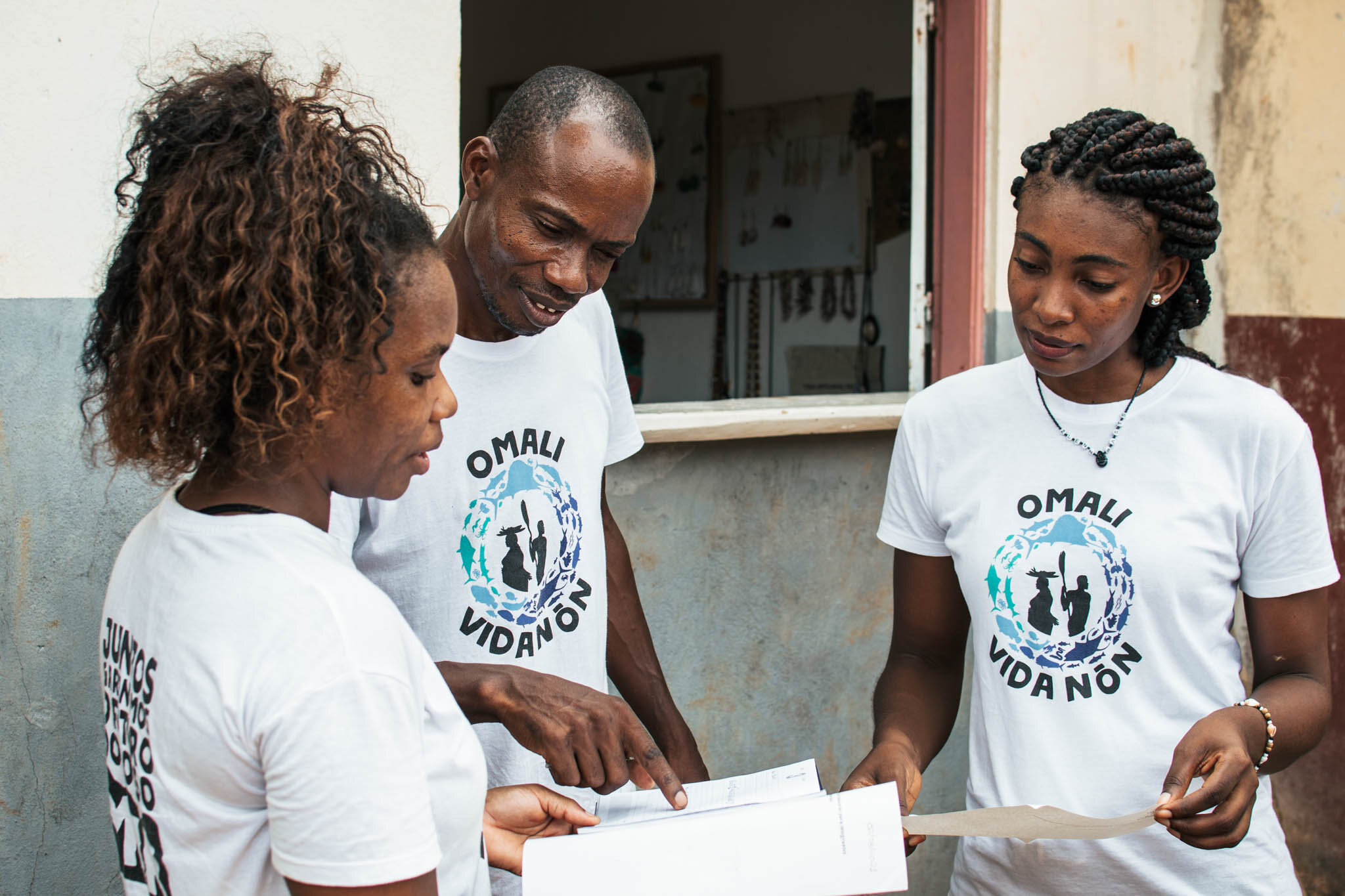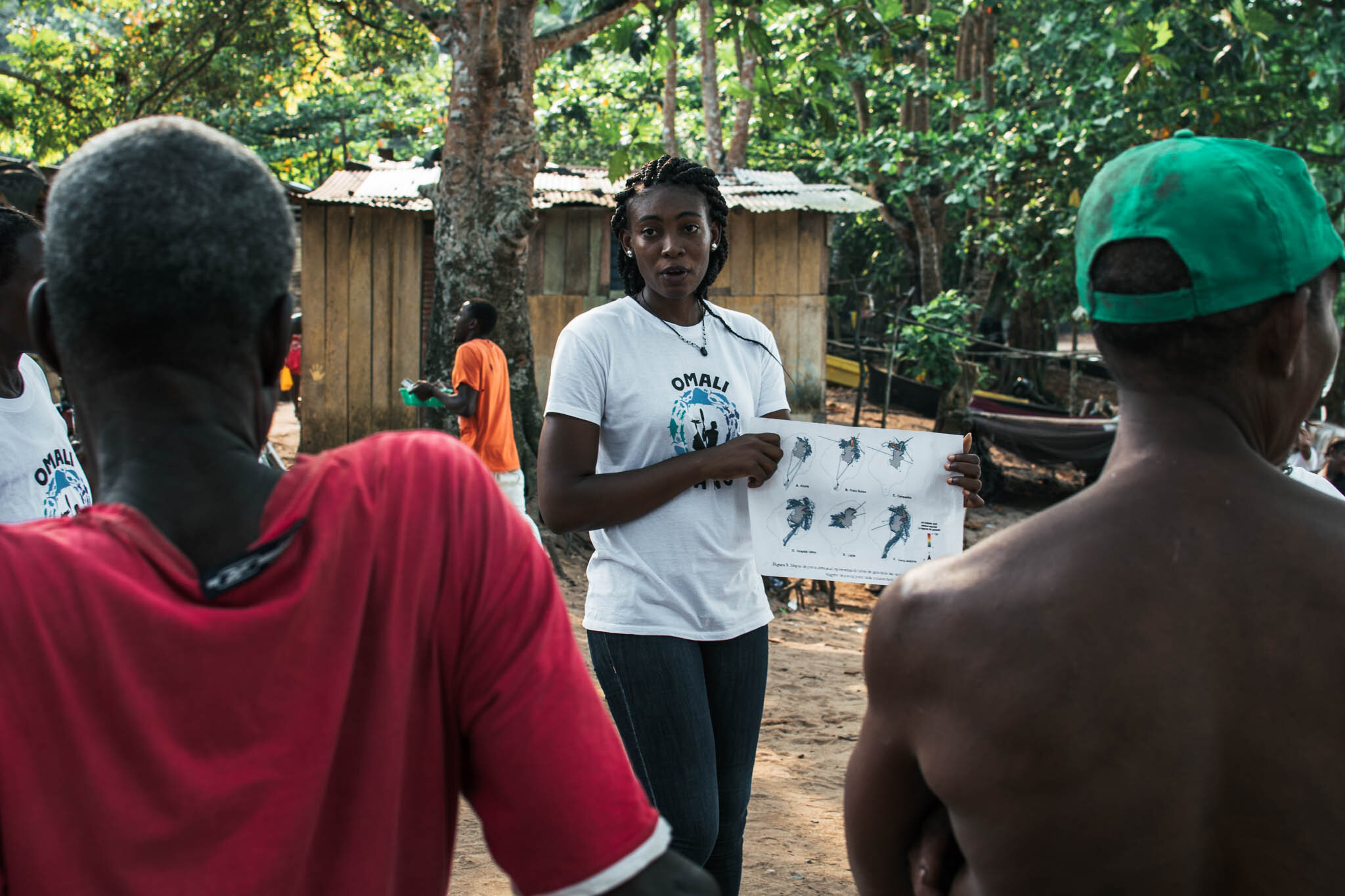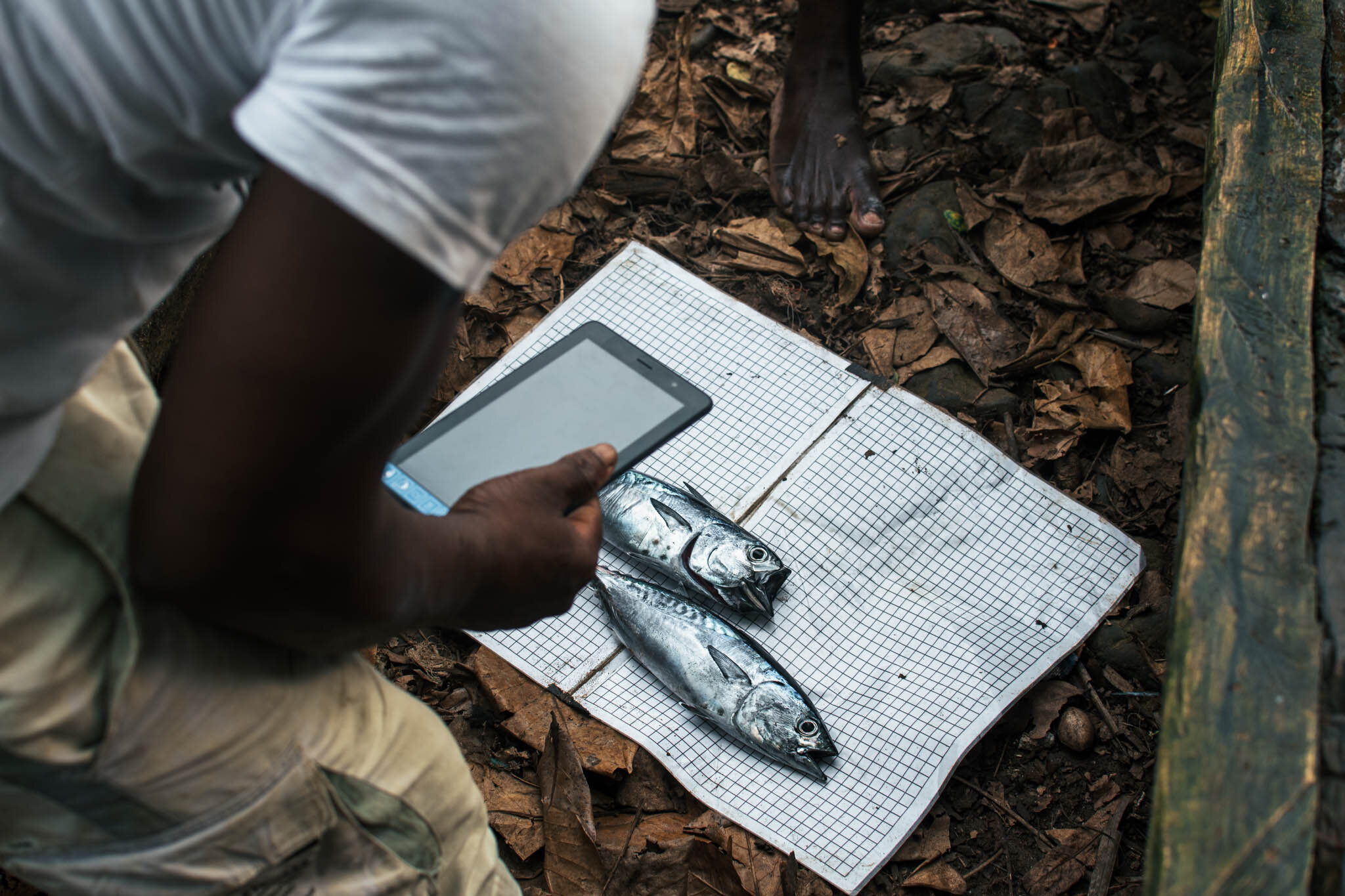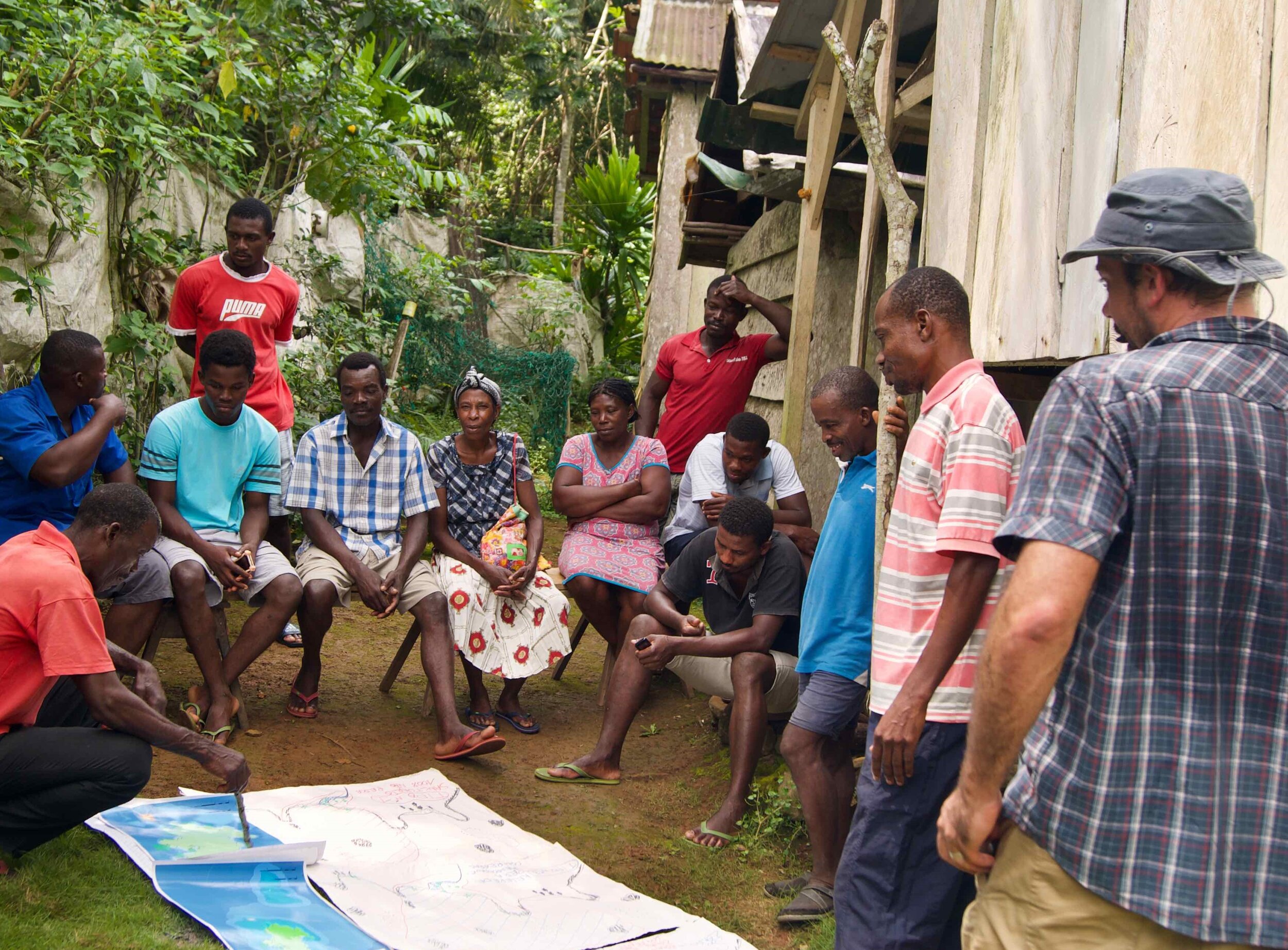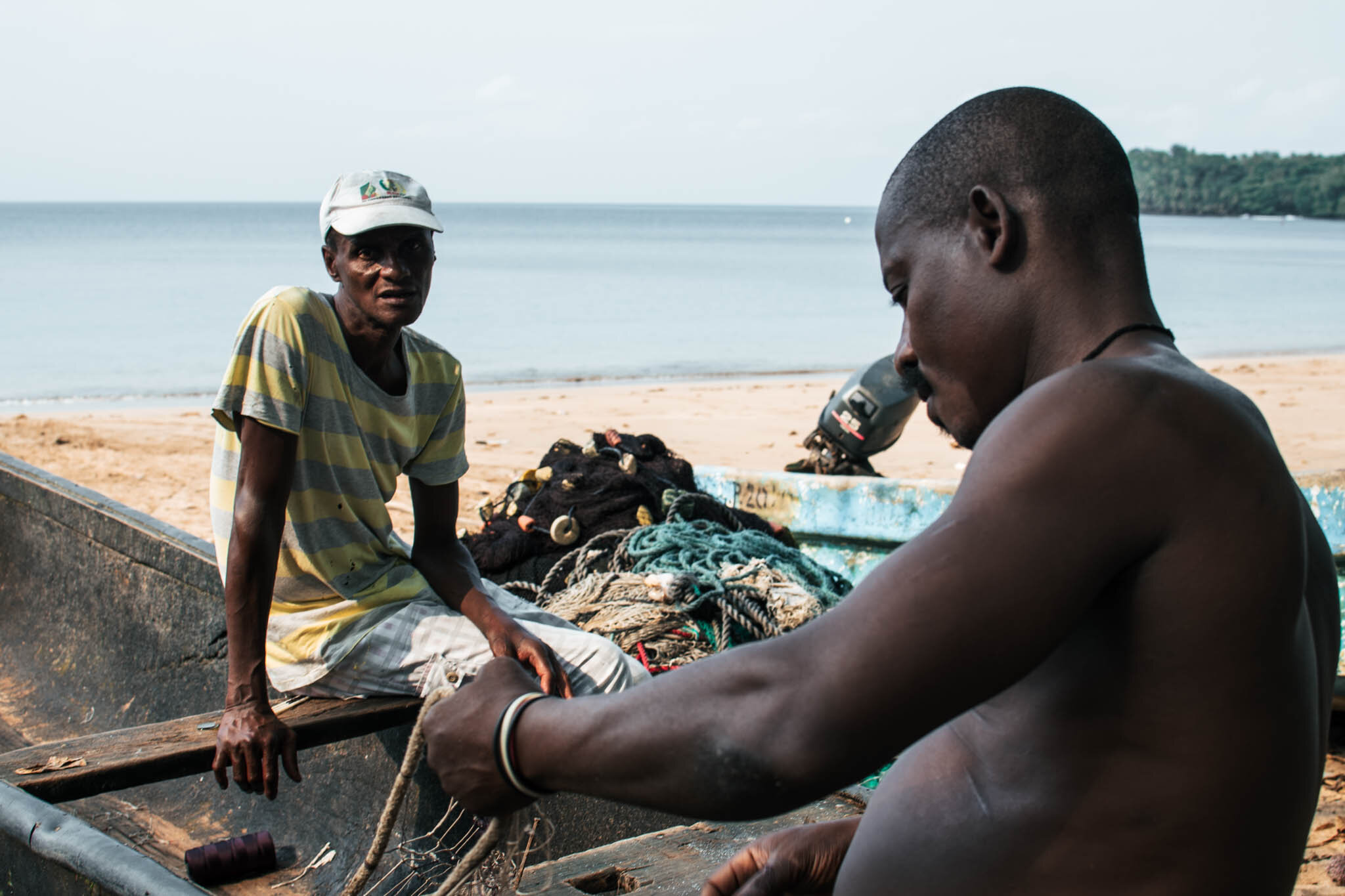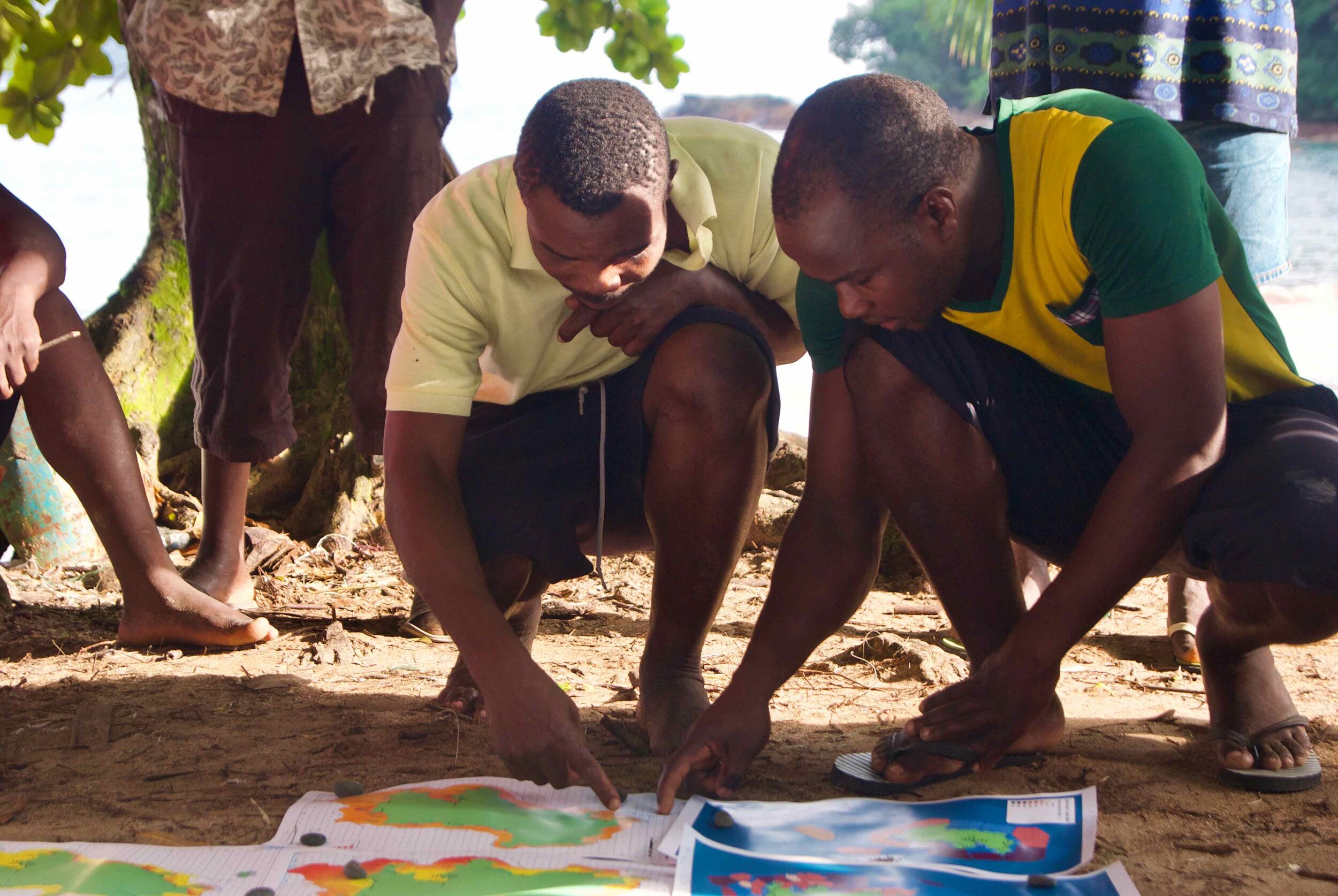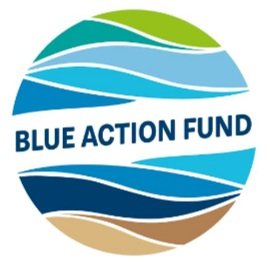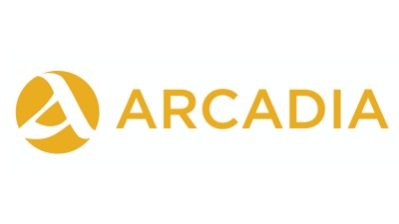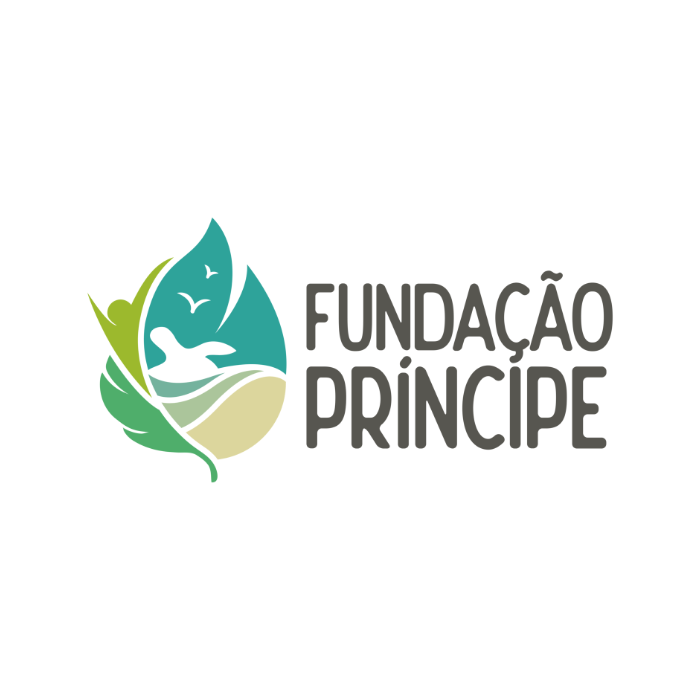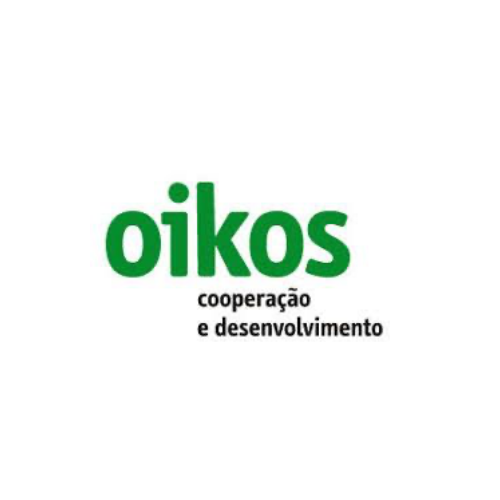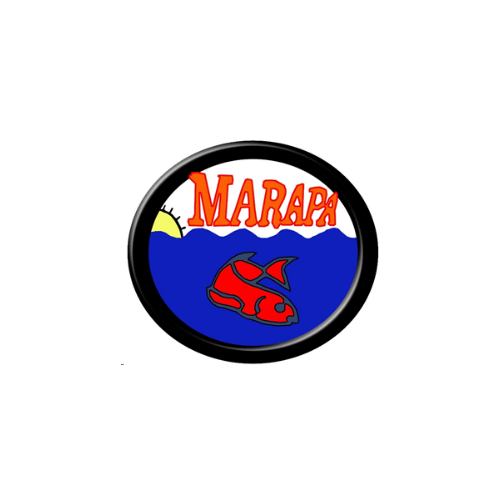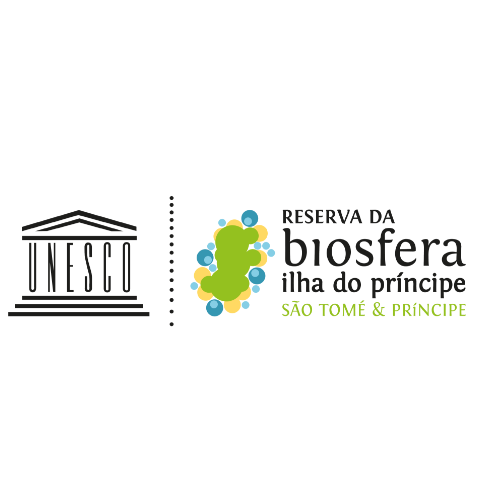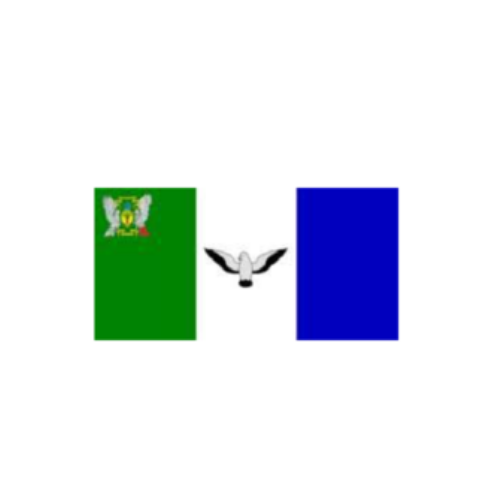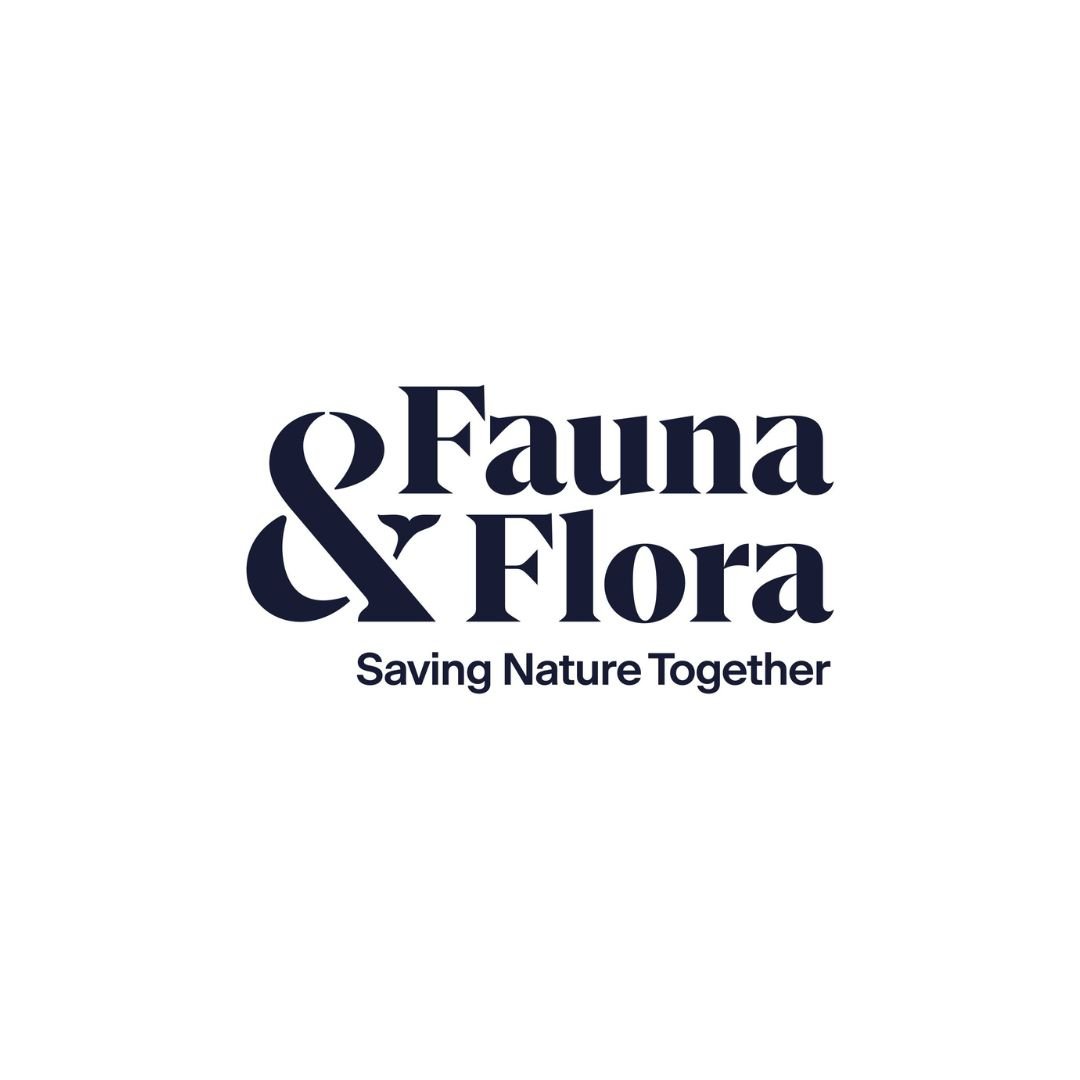Building from the 1st phase of “Omali Vida Nón” (Príncipe) and “Kike da Mungu” (São Tomé), this project - funded by the Blue Action Fund and Arcadia - will designate the first Marine Protected Areas (MPAs) in São Tomé and Príncipe.
Through a co-management approach involving fishermen, fish vendors, and the regional and national governments, Omali Vida Nón Phase 2 aims to conserve marine biodiversity and ensure that fisheries are delivering sustainable livelihoods for the people of São Tomé and Príncipe.
Context:
Population growth, overfishing, the use of destructive techniques, and conflicts with industrial fishing are putting pressure on marine resources in São Tomé and Príncipe, causing widespread degradation of habitats and damaging the artisanal fishing sector.
This is confounded by a lack of knowledge of legislation amongst fishermen, and a lack of resources on the part of authorities to monitor catches and fishing practices.
To mitigate the threats to marine biodiversity and protect species and habitats around São Tomé and Príncipe, the project is facilitating the participatory designation and management of Marine Protected Areas by community members, local government, and other stakeholders. This approach has been developed through consultations with fishing communities on the two islands, supported by a suite of biological and socio-economic research.
Map of line fishing grounds around Príncipe Island
In addition to creating a network of MPAs, the project is engaging with affected coastal communities to increase and diversify incomes. It is providing support and training for community members to develop sustainable micro-businesses, which directly contributes to the National Poverty Reduction Strategy, the National Sustainable Development Plan, and the objectives of the Príncipe Biosphere Reserve.
Main activities include:
Gathering scientific data on marine biodiversity and habitats to support the designation of MPAs (e.g., use of BRUVs, and participatory mapping of coastal and marine habitats);
Collecting fisheries data (e.g., fishing effort, catch sizes, fishing zones, fishing gear, etc.) to support the designation of MPAs (e.g., through a participatory approach with extension officers in each of the fishing communities);
Delivering training to relevant stakeholders to build understanding of co-management principles and MPA concepts;
Using Marxan-with-Zones (spatial planning software) to identify a network of MPAs that meet conservation and sustainable fisheries goals;
Participatory demarcation of MPAs;
Supporting the development of legislation that establishes the co-managed areas and the creation of an appropriate participatory governance/supervision mechanism;
Supporting the development of biological monitoring protocols;
Developing an operational maritime surveillance strategy, including a community fisheries control mechanism, and strengthening the specific capacities of relevant government departments;
Assessing of the feasibility of establishing long-term financing mechanisms to support the management of MPAs beyond the project duration;
Training in complementary livelihoods;
Creating alternative or complementary employment opportunities (e.g., community micro-businesses);
Analysing the effectiveness of initiatives to reduce post-capture losses;
The Príncipe Foundation and other project partners have deep bonds with the fishing communities of São Tomé and Príncipe, which leads to a close and productive working relationship. The project takes specific measures to ensure that fishermen and fish vendors from São Tomé and Príncipe's fishing communities are consulted, represented, and empowered to benefit from the project's activities.
Funders & partners
You can visit here the official website of the “Omali Vida Non” Project.
